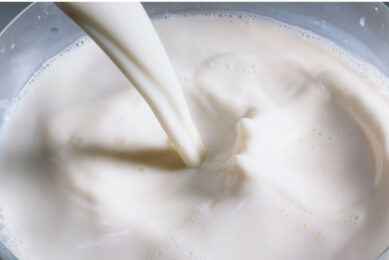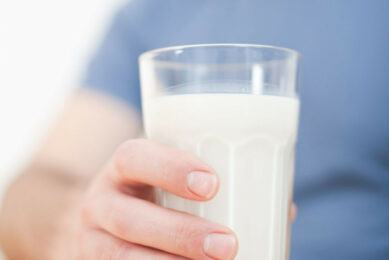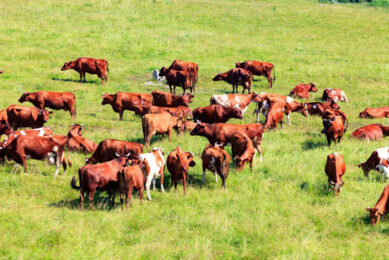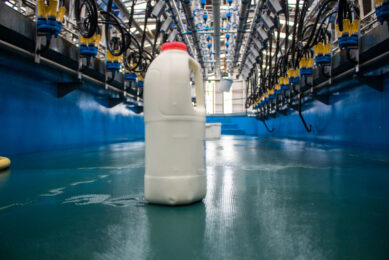New chief has big plans for Dale-Farm Co-op
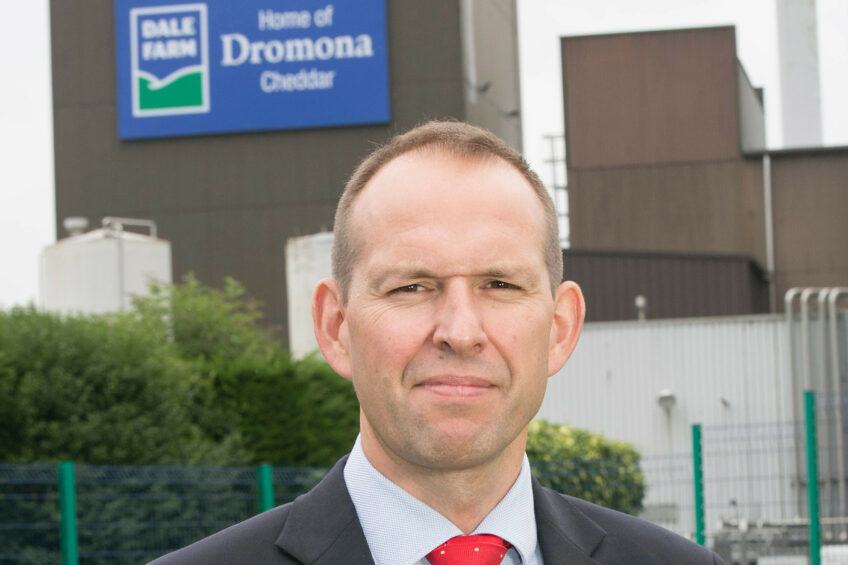
The new man at the helm of the now formally christened Dale Farm Co-op says his main goal is to deliver profitable growth for the business and to pay his farmer members more for their milk.
For some years the United Group, now renamed as Dale Farm Co-op, sat at the bottom of the processors price league tables but now it proudly leads the way. Whelan said: “During the recent AGM the board agreed to rename United Dairy Farmers and its Dale Farm processing arm as simply Dale Farm Co-Op Ltd or Dale Farm for short.”
The 44 year old Wexford man started off delivering milk to doorsteps for a year after graduating with a Bachelor of Commerce degree from University College Cork in 1995 before climbing the ladder through a number of different dairy processing companies. He spent 11 years with the Kerry Group starting in 1995 and then moved on to Glanbia as commercial director from 2007 to this year before being ‘head hunted’ for the big Dale Farm job.
A business with potential
Today Nick and his Kerry born wife Sandra and their three daughters have made the bold move to Belfast to start a new life and in his words ‘reconnect’ with the 1,300 farmers that supply Dale Farm. Speaking about his role he said: “Dale Farm is a business that has significant potential. I’m excited at the opportunities that are available within the business. It’s got a number of genuine real assets including a very loyal and ambitious farm supplier base. They have been incredibly loyal to the cause. They have a real passion for survival and evolution of the society.”
Pay farmers higher prices
Dale Farm employs 1,300 staff and has average annual sales of £420m over the past five years. However, it has only a 1% profit margin of £4.2m (€4.8m) which Nick Whelan wants to improve in order to pay higher milk prices to the farmer members. Whelan said: “There are 1,300 employees working for Dale Farm. Our turnover is £420m (€485m) and our profit is only 1% of that at £4.2m (€4.8m) looking at our last five years. I am not happy with that profit margin and my goal is to make more profit from our milk pool and to pay the farmers higher prices. Our goal here is to deliver the best price to farmers. We are currently paying an average of £27 pence per litre (€0.31) to our farmers, which is a base price plus bonuses for winter production and quality. This includes a £0.03 pence per litre (€0.034) bonus each month for loyalty and £0.04 (€0.046) for every litre that farmers produce extra in October through to December over their production in the same period in 2015,” he said. Farmers were somewhat confused when Dale Farm recently put out a request for more milk, but as Whelan explained, his reasoning was quite logical.
“I am actually having to ration some cheese and dessert products to customers as we do not have enough milk. We need more milk suppliers to ensure our modern facilities are running to full capacity. We have a precious milk pool here at Dale Farm and we need to protect it.”
Brexit will have an effect
The Red Tractor quality assurance initiative was established in 2000 and has grown to become the UK’s biggest farm and food standards scheme, covering all aspects of animal welfare, food safety, traceability and environmental protection. Nick added: “Our customers demand the security of a constant supply of product and with the Red Tractor quality assured label that is something we can guarantee them.” He also feels Dale Farm is in an excellent position to supply UK customers even after Brexit. He added: “Even as Brexit develops, we have an assured supply to our UK markets free from currency fluctuations and free from trading tariffs. “We do not source any milk from the Republic of Ireland but we do sell products to customers there. Brexit will affect us come 2020 if the UK government does not carry on with a support mechanism to replace the Single Farm Payment. If they don’t then that has the potential to wipe out the entire industry. Also, 23% of our workforce are non-UK nationals, and we want to hold on to them.”
Reconnect with farmers
Whelan stressed that his five-year plan is to use all the assets already established within Dale Farm, in terms of the loyal farmer base and the modern processing facilities, to concentrate on extracting more profit from every litre of milk produced. “I want to reconnect with our farmers,” he said. “We are going to open the place up and let them tour the factories. After all it is their Dale Farm, and we here are only the hired hands.”
Join 13,000+ subscribers
Subscribe to our newsletter to stay updated about all the need-to-know content in the dairy sector, two times a week.



